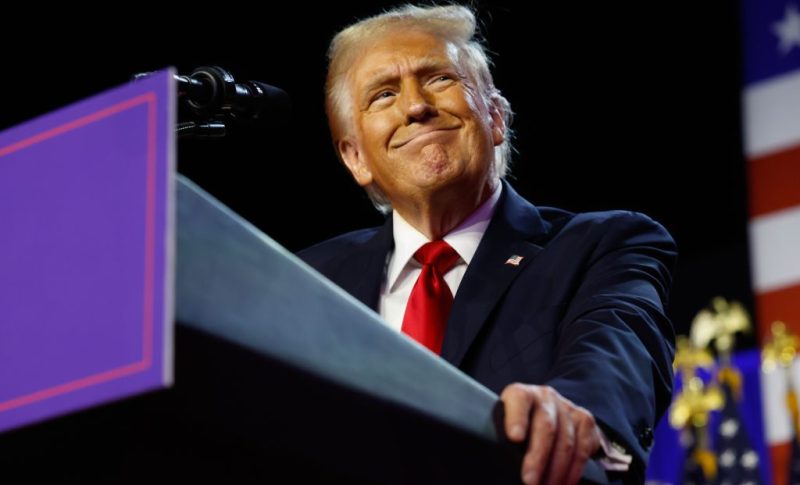
(NEXSTAR) – President-elect Donald Trump is returning to the White House after defeating Vice President Kamala Harris, but what will his second term mean for the millions of Americans with student loan debt?
Trump and his fellow Republicans have criticized Biden’s loan forgiveness efforts in the past, saying that it would be “unfair” to the millions of students who repaid their loans. Lawsuits by GOP-led states have also held up plans for widespread debt cancellation. Trump has not said what he would do on loan forgiveness, however, leaving millions of borrowers facing uncertainty over their personal finances.
Further complicating the situation, Trump has vowed to dismantle the Department of Education, which oversees student loan policies.
Trump has publicly tried to distance himself from the Heritage Foundation’s Project 2025 playbook (despite tapping some involved in writing it), but should he change his mind once in office, the proposal calls for the privatization of student loans and phasing out of repayment programs, ultimately making it impossible for the government to provide debt forgiveness.
Impact on student loan payment amounts
President Biden’s signature Saving on a Valuable Education (SAVE) plan is in legal limbo after lawsuits by seven Republican state attorneys general. Should the income-driven program cease to exist under the next administration, payments could go up for those enrolled, roughly 8 million as of mid-2024.
SAVE bases monthly payments on income and family size, allowing borrowers making less than 225% of the federal poverty line ($32,800) to make $0 payments. For other plans, that cutoff is 150% of the poverty line ($22,000). SAVE also prevents interest from piling up as long as the adjusted monthly payment is made, and caps the repayment period at 20 years for undergraduate loans and 25 years for graduate school loans.
The plan is currently held up in court after an injunction in late October, putting repayments on an interest-free pause for six months pending further developments from the 8th Circuit Court of Appeals.
Should borrowers be forced to choose from an alternate repayment plan, monthly payments could jump significantly. In one Department of Education example, someone earning $40,000 annually with $45,000 in loan debt could see payments rise from $60 to $151, $227, or $349, depending on which plan they choose, according to the Los Angeles Times.
Savannah Britt owes about $27,000 on loans she took out to attend college at Rutgers University, a debt she was hoping to see reduced by President Biden’s student loan forgiveness efforts.
“With this new administration, the dream is gone. It’s shot,” said Britt, 30, who runs her own communications agency. “I was hopeful before [Election Day]. I was waiting out the process. Even my mom has a loan that she took out to support me. She owes about $18,000, and she was in the process of it being forgiven, but it’s at a standstill.”
What is the Biden administration doing?
“Let’s make every day count,” President Biden said in the wake of Vice President Harris’ election defeat.
Among the priorities that the Biden administration is fast-tracking before Inauguration Day is a new federal rule that would cancel student loan debt for people who are struggling financially.
If finalized, the proposal would authorize one-time debt relief for people who meet the criteria for hardship after the Education Department performs a “holistic assessment.” The second route to debt relief would come via a “predictive assessment” process which would allow forgiveness for loans that are “at least 80 percent likely to be in default within the next two years.”
Proposed by the Education Department at the end of October, the rule is currently in a public comment period that is set to close Dec. 2. The Biden administration will then have tight window to finalize the rule and set it in motion, a process that usually requires several months.
As with past efforts to provide debt relief, this one will likely be challenged in court.
Additionally, the Biden administration has room to speed up student loan cancellation for people who were already promised relief because they were cheated by their colleges, said Aaron Ament, an Education Department official for the Obama administration and president of the National Student Legal Defense Network.
Education Secretary Miguel Cardona could decide that case and others rather than hand them off to the Trump administration, which is expected to be far friendlier to for-profit colleges. “It’s a no-brainer,” Ament said. “There’s a good number of cases that have been sitting on Cardona’s desk. It’s hard to imagine that those would just be left untouched.”
The Associated Press contributed to this report.

